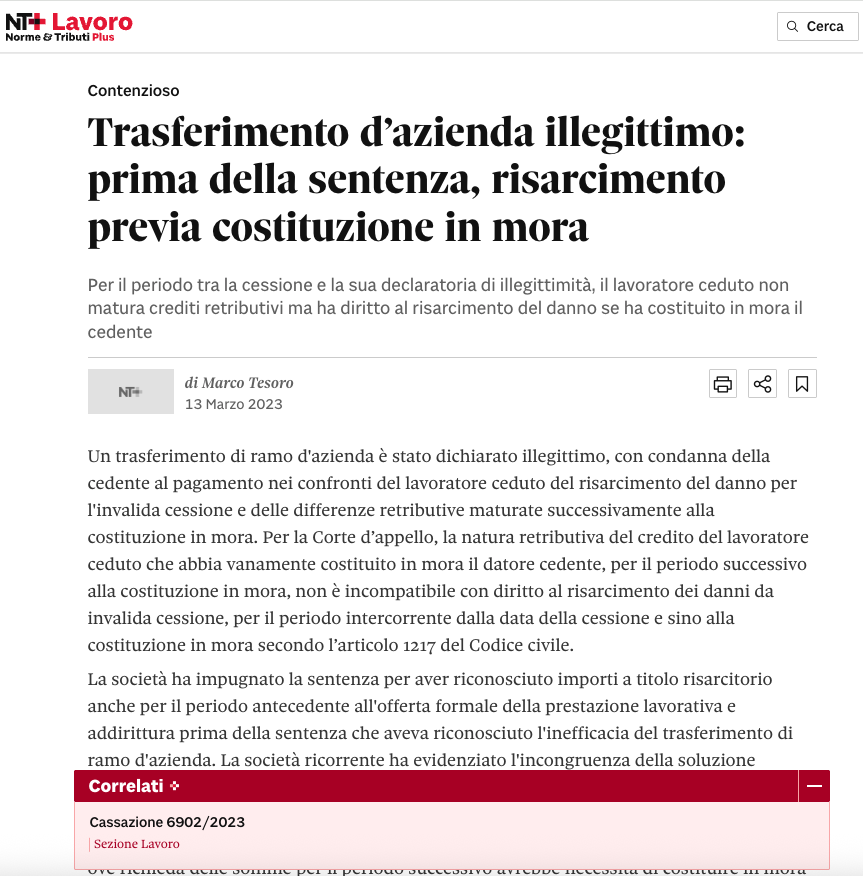Related Posts
Gruppo 24Ore28 January 2026
Journalist work: availability obligation also for the correspondent
Pubblicato su: Il Sole24Ore - Nt Lavoro - 28/01/2026 Leggi qui
Gruppo 24Ore28 January 2026
Failure to assign objectives does not give rise to compensation
Pubblicato su: Il Sole24Ore - Nt Lavoro - 27/01/2026 Leggi qui


